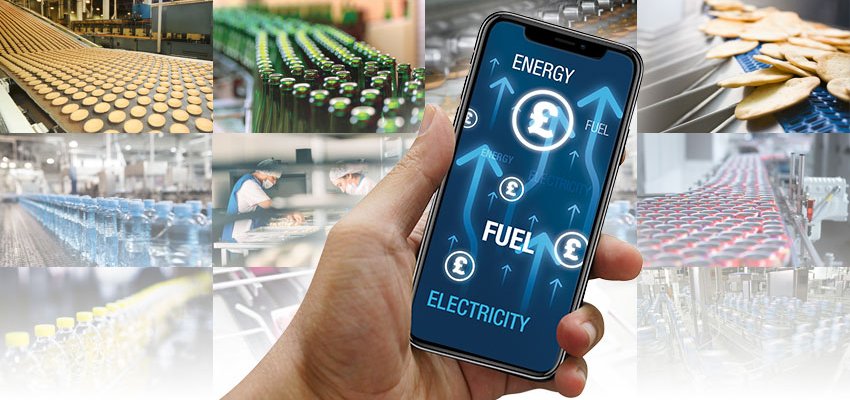The food and beverage industry is particularly vulnerable to energy crises, because food and beverage production is an energy-intensive process.
Energy prices are likely to stay high for much longer
Power prices in Germany, the UK, France, Italy and Spain (Western Europe’s five biggest economies) hit an all-time high this year. With food and drink businesses being hit far harder by rising energy prices and international supply chain hitches than other industries, according to the UK Office for National Statistics – February’s invasion of Ukraine by Russia – Europe’s biggest supplier of gas – heaped further pressure on energy prices and related costs such as transport and fertiliser. Whether at the start of the process with growers and producers of raw ingredients; to the packaging of the finished goods, compressed air is a core component.
The energy price spike and supply chain strain hits food harder than other industries
Compressed air is present in almost every link of the food and beverage supply chain. In the UK there are tens of thousands of factories operating in the multiple tiers of the food industry – almost all using compressed air. Bakeries use compressed air in blow-off applications, others to clean containers before filling with food. Compressed air is used to sort, cut and shape food products. It's used in machines forming, filling and packaging food stuffs from dairy products to juice and alcohol. It's used as a power source for many food and beverage operations because it's a versatile, safe and flexible way to transmit energy.
Energy savings opportunities in food and beverage compressed air
The most expensive component in the total cost of compressed air is energy. The bottom line, maximising your compressed air energy efficiency saves you money. The first step to reduce compressed air energy costs is to measure and monitor your compressed air system's energy consumption, flow rates and operating air pressure.
The first step is a FREE Compressed Air System Safety Survey & Energy Audit.
Cambs Compressors engineers can provide you with an expert assessment free. System safety survey & energy audits will also quickly identify any other inefficient equipment, maintenance procedures, and give you the relevant low cost/no cost measures to reduce your energy costs – such as leak detection and repair to reduce system waste.
To ensure we can provide the highest service levels and most responsive support, our Flexible Maintenance Support Agreements are only eligible to facilities operating within 50 miles of St Ives, Cambridgeshire but don’t worry, we’ll confirm this before wasting any of your time.



